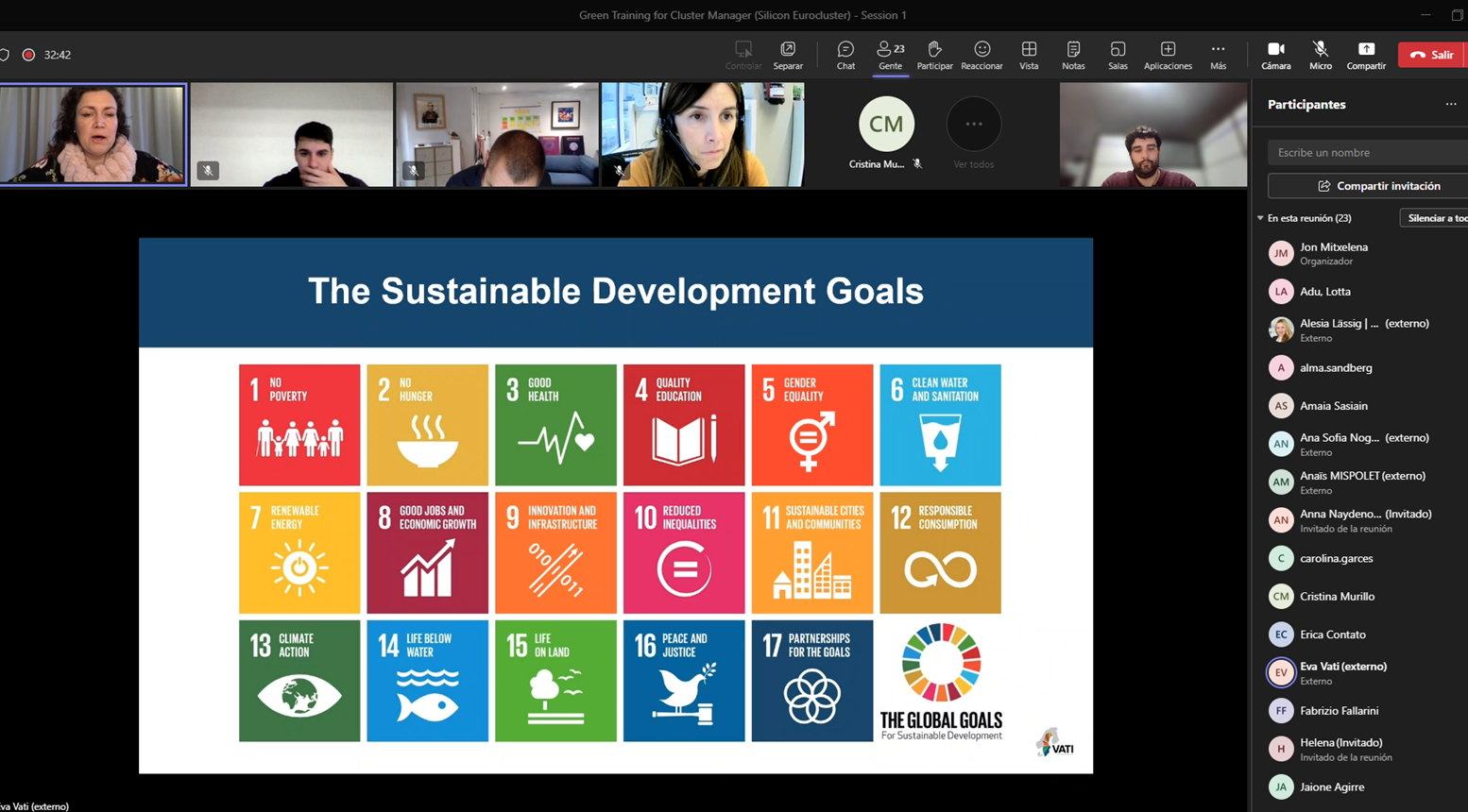Training for Cluster Managers Elevates Green Technologies and Sustainability Practices

On February 27th, cluster managers and sustainability professionals gathered online for an empowering training session focused on green technologies, the Sustainable Development Goals (SDGs), and Circular Economy principles. The event, aimed at building capacities and enhancing skills in sustainability practices, marked a significant step towards integrating green technologies into business strategies.
The training kicked off with a very interesting morning session led by Eva Vati, CEO and founder of VATI of Sweden, who delved into the 2030 Sustainable Development Goals and Circular Economy. Participants were given a comprehensive overview of the agenda, exploring its importance, framework, and how to effectively implement it within their operations. The discussion on the legal framework for implementation, including the Corporate Sustainability Reporting Directive (CSRD) and the importance of verification to eliminate fraud and greenwashing, provided actionable insights for attendees.
A significant part of the session was dedicated to practical applications of the SDGs in the workplace. Vati highlighted the impact of the SDGs on the economy, environment, and community, offering guidance on potential actions, Key Performance Indicators (KPIs), and reporting methodologies. The Circular Economy segment further enriched the training, with discussions on objectives, business models, and practical experiences shared among participants.
The afternoon sessions expanded the day's learnings to specialized topics such as decarbonizing the digital sector, presented by Minalogic's Jérôme de Parscau, and the Videogame Impact Calculator, introduced by Geoffrey Marmonnier from the Game Only cluster. These presentations underscored the diverse applications of sustainability principles across different sectors. Highlights from the GREEN-SME project were shared by Tekniker's Jaione Agirre, offering insights into the project's outcomes, the community platform, and methodologies adopted for assessment.
The day concluded with an insightful presentation from Andreas Middendorf of Fraunhofer, focusing on the education agenda within the Green ICT project funded by the German Government. This session provided a glimpse into the future of sustainability education and its pivotal role in fostering green technologies. Feedback from participants underscored the training's success in providing a well-rounded understanding of green technologies and sustainability practices.
The emphasis on practical applications and the sharing of best practices inspired attendees to consider innovative approaches to implementing the SDGs and Circular Economy principles within their clusters. This training not only highlighted the importance of green technologies and sustainability in today's business landscape but also demonstrated the collective commitment to achieving a more sustainable future.